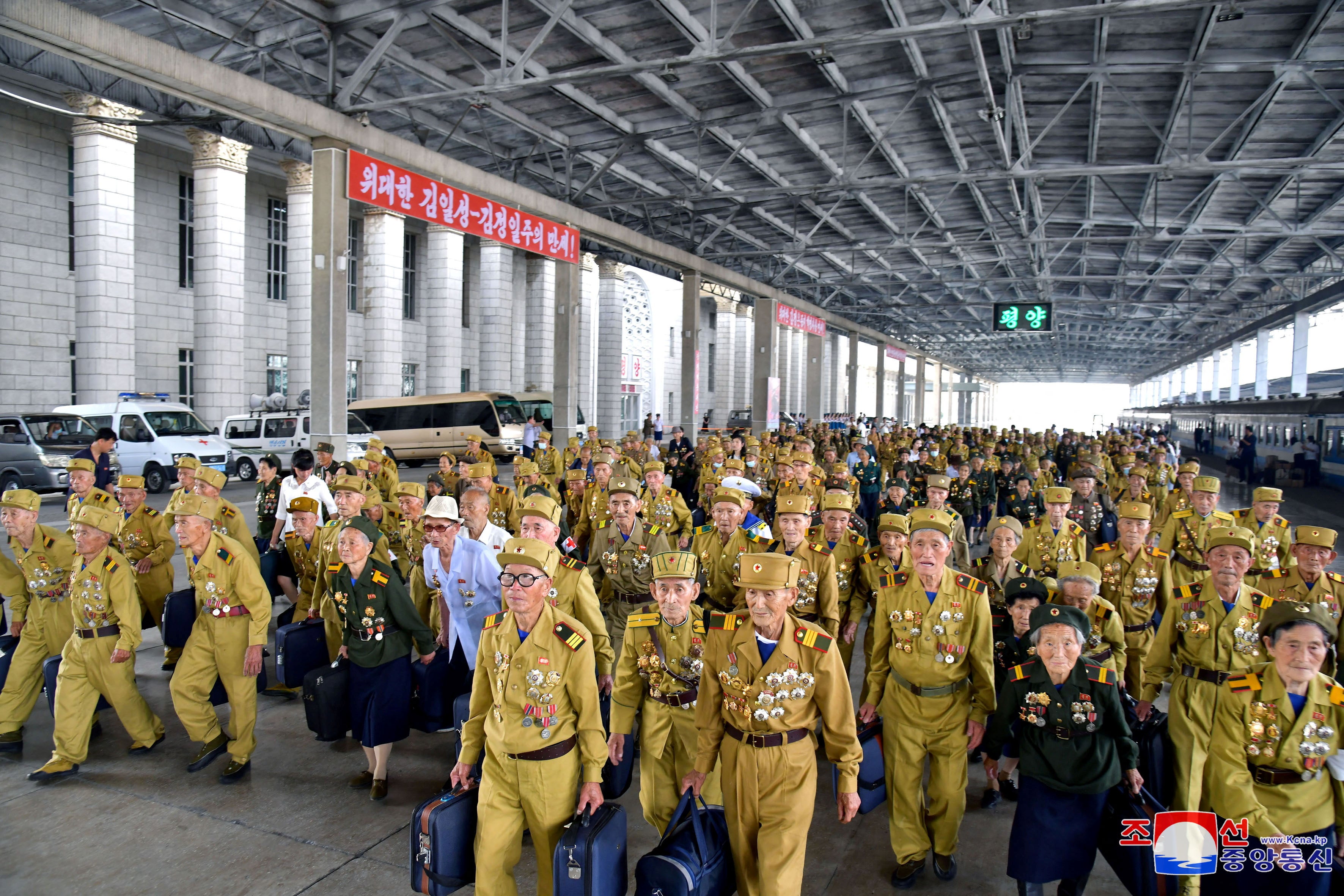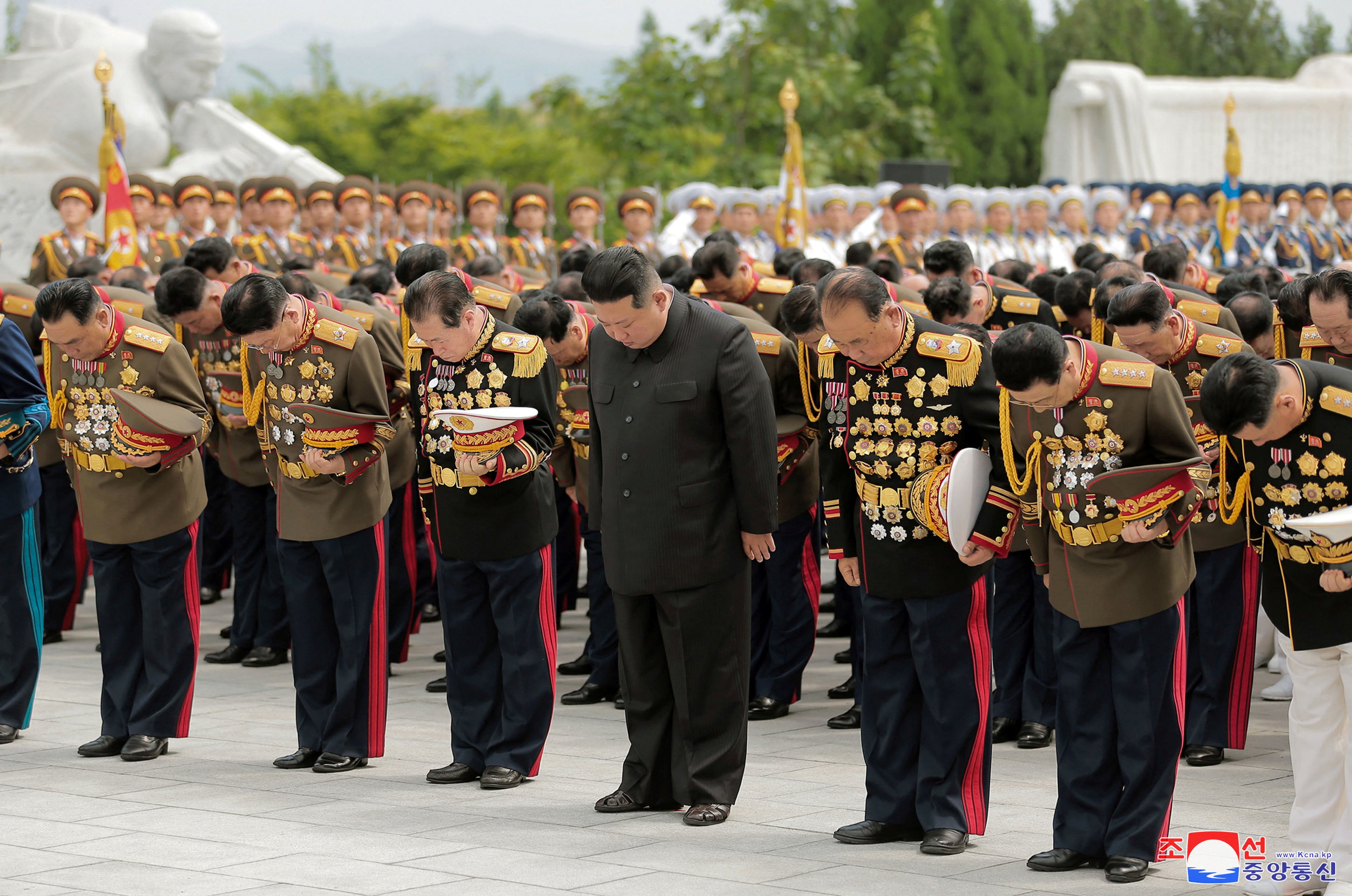Russian and Chinese military delegations travel to North Korea for armistice celebrations
Pyongyang invites allies to partake in ‘Victory Day’ celebrations as tension simmers between the two Koreas

Your support helps us to tell the story
From reproductive rights to climate change to Big Tech, The Independent is on the ground when the story is developing. Whether it's investigating the financials of Elon Musk's pro-Trump PAC or producing our latest documentary, 'The A Word', which shines a light on the American women fighting for reproductive rights, we know how important it is to parse out the facts from the messaging.
At such a critical moment in US history, we need reporters on the ground. Your donation allows us to keep sending journalists to speak to both sides of the story.
The Independent is trusted by Americans across the entire political spectrum. And unlike many other quality news outlets, we choose not to lock Americans out of our reporting and analysis with paywalls. We believe quality journalism should be available to everyone, paid for by those who can afford it.
Your support makes all the difference.Russian and Chinese delegations will be in North Korea this week as the reclusive country celebrates the 70th anniversary of the Korean War armistice, in the first such visit since the onset of the coronavirus pandemic.
The Chinese delegation will be led by Communist Party of China’s polituburo member Li Hongzhon, who will attend the "Victory Day" ceremonies in capital Pyongyang, according to state media Korean Central News Agency (KCNA).
The Russian delegation, led by defence minister Sergei Shoigu, will visit North Korea from 25-27 July to "participate in festive events" marking the end of the Korean War, the defence ministry said in a statement.
“This visit will help strengthen Russian-North Korean military ties and will be an important stage in the development of cooperation between the two countries," it added.
The conflict between the North, backed by then Soviet Union and China, and the South supported by the US and allied forces, raged between 1950-1953.
"The celebrations for the 70th anniversary of the victory in the Fatherland Liberation War are to be held in the capital city of Pyongyang as a grand political festival to be specially recorded in the history of the Korean nation," the state media reported.
North Korea closed its border in early 2020 to all trade and diplomatic exchanges, even with its main economic and political partners China and Russia.
The show of unity between the three nations amid North Korea's aggressive nuclear aspirations comes at a time when the United States is strengthening its military bases in South Asia to counter China.

North Korea has been under UN sanctions for its missile and nuclear programmes since 2006, however, that has not deterred the Kim Jong-un administration from routinely firing test missiles, including those that are intercontinental and ballistic in nature.
At a security council meeting in March, China and Russia jointly blamed Washington and South Korea for provoking Pyongyang by conducting joint military drills. The US responded by accusing the two Communist nations of emboldening North Korea by shielding it from more sanctions.
China on Monday asserted that it “strictly” implements UN sanctions on North Korea, reacting to a letter from the Group of Seven, EU and others that urged Beijing to stop Pyongyang’s military escalation.
The North fired two ballistic missiles into the sea off its east coast on Monday, in an apparent reaction to a US nuclear-powered submarine's arrival at a South Korean military base. This is the second time in the last seven days that the North has fired off missiles.
The launches come as US officials are attempting to negotiate the release of Travis King from North Korean custody.
The UN Command and Pyongyang have initiated talks over the case of US soldier Mr King who sprinted across into the North, according to reports.
The American soldier serving in South Korea had rushed into North Korea on 18 July while on a civilian tour of the Demilitarised Zone, located on the border strip that runs between the two Koreas.
The US army said he intentionally crossed the border as he would face disciplinary action upon his return to the US.
American authorities are, meanwhile, concerned that the North would demand a "price" in order to secure the safe return of Mr King.



Join our commenting forum
Join thought-provoking conversations, follow other Independent readers and see their replies
Comments